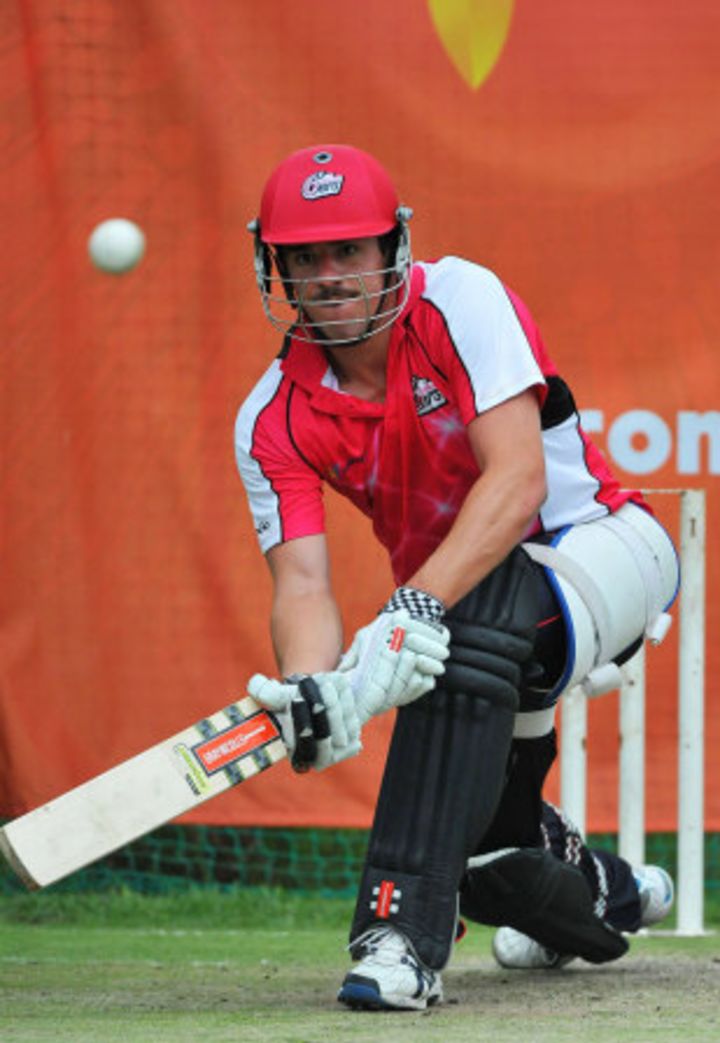Australia's pointless tour to India could lead to selection blunders
The temptation to pick those who do well in the ODIs for the Ashes is a dangerous one, especially given there is still no No. 6 batsman in sight

Cricket Australia obviously doesn't believe in omens - certainly not the bad variety.
Prior to the 2010-11 Ashes in Australia, the team toured India. They lost the Test series 2-0 and followed that with an adverse Ashes result at home. Having recently lost an away Ashes series by 3-0, Australia are tempting fate by embarking on another Indian tour ahead of another home Ashes.
At least this time it's only limited-overs and very few of the Test players will be involved in the tour. Nevertheless, India has been a black hole of late for Australian teams. It was a 4-0 loss earlier in the year that precipitated Australia's slide down the Test-match ladder, and the country's two teams in the Champions League - Perth Scorchers and Brisbane Heat - recently left India without a victory and with their tails between their legs.
Agreeing to this meaningless ODI tour of India so close to an Ashes series is evidence that Cricket Australia is more concerned with dollars than sense.
Australia's mounting Test losses not only hurt in the record book but have also shredded the team's aura. During the golden years Australian teams had an inbuilt advantage; many of their opponents were half-beaten the moment they looked at the opposing team list. However, once Australia started to lose, other teams felt empowered, sensing vulnerability.
Australia's weakness in this bleak period has been batting in general, and coping with good spin bowling in particular. The flaws have become so glaring that at a Lord's Taverners function I attended recently in London, the comments from former players were pointed. "What's happened to Australian batsmanship?" was the welcome from past opponents before I received the obligatory "Oh, and by the way, how are you?"
The glaring batting weakness will be exacerbated in India by the absence of Michael Clarke, easily the best player of spin in the Australian side. Without Clarke to guide them and be a steady source of runs, Australia are at risk of again losing in India. While few from the ODI team will be in contention for the Test side, a demoralising loss on the eve of an Ashes series won't help Australian morale, while it will boost England's outlook.
The only good news surrounding Clarke's withdrawal from the Indian tour is that it might mean he'll get some much-needed red-ball match practice under Australian conditions. On the other hand if his injury curtails his cricket in Australia, it'll be a huge handicap to the team if he's either unavailable or underdone for the Gabba Test.
Not only is the scheduling of this tour badly timed for the players, it also hasn't done the Australian selectors any favours. Normally at this time they would be gauging batting candidates for the No. 6 position in the Test side based on their domestic first-class form. Now they'll feel obliged to take into account any contenders who put up good performances on the tour of India.
This could lead to some selection blunders. Runs scored in the relative serenity of a 50-over game are a far cry from those that need to be earned in the pressure-cooker atmosphere of an Ashes Test against a good attack.
I don't see a potential No. 6 Test batsman in the ODI squad. Worse still, there are a few batsmen in that squad who are vulnerable against spin bowling, a weakness the Indians are sure to exploit. This means potential contenders could return to Australia's firmer pitches with their confidence undermined.
It has been obvious for some time that the No. 1 priority among cricket administrators is the bottom line, and the timing of this ODI tour is further proof. What wasn't so obvious was that Cricket Australia isn't superstitious and nor does it believe in bad omens.
Former Australia captain Ian Chappell is now a cricket commentator for Channel 9, and a columnist
Read in App
Elevate your reading experience on ESPNcricinfo App.